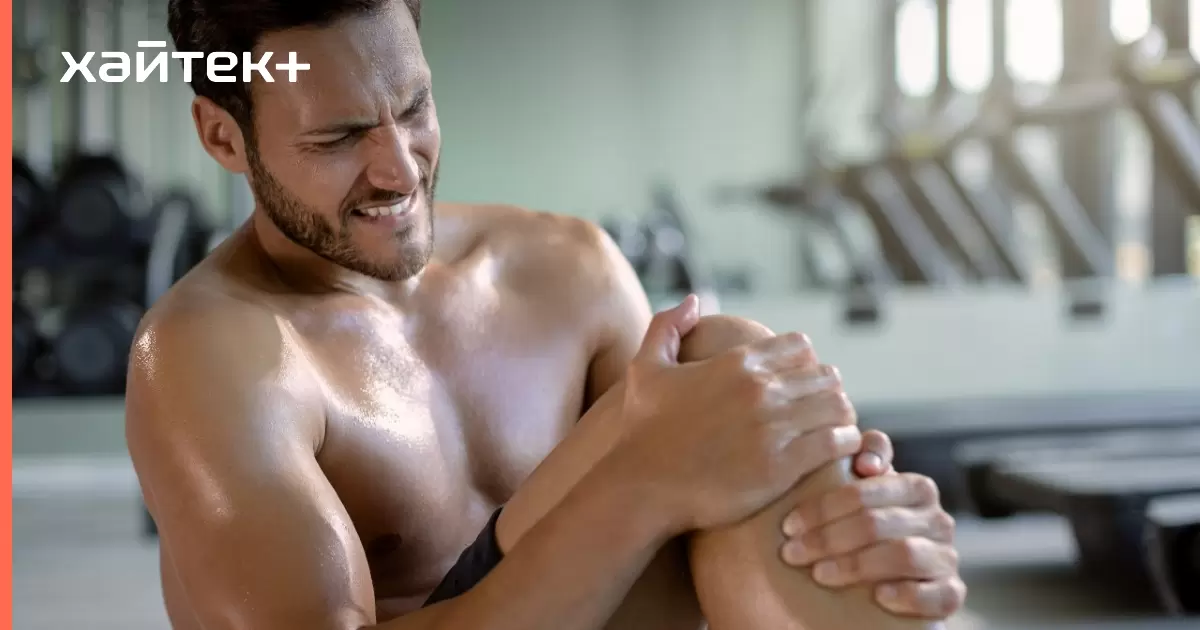A Jacuzzi, commonly known as a hot tub, is often considered a luxurious way to relax. But beyond its leisurely appeal, it’s believed to have benefits for sore muscles. The warm, bubbling water is thought to soothe muscle discomfort and aid in recovery, especially after intense physical activity. This concept centers around the idea that heat and massage-like actions from the water jets can provide relief to strained or overworked muscles.
When it comes to finding relief from muscle soreness, many people turn to various remedies. Among these, the use of a Jacuzzi stands out as both a relaxing and potentially therapeutic option. But what’s the truth behind this soothing solution? Does Jacuzzi Help Sore Muscles? This question not only piques curiosity but also delves into the intersection of relaxation and physical health.
The idea that a Jacuzzi helps sore muscles is rooted in the effects of heat therapy and hydrotherapy. The warm water in a Jacuzzi increases blood circulation, which can help in muscle recovery. Moreover, the water jets provide a gentle massaging action, potentially easing muscle tension and stiffness. While this sounds promising, it’s essential to understand the extent and limitations of these benefits for sore muscles.
Understanding Jacuzzis and Their Basic Functions
Jacuzzis, or hot tubs, are popular for their luxurious and relaxing features. They work by using hot water and jets to create a soothing environment. This combination of heat and water movement is key to their function. Jacuzzis are not just for relaxation; they offer potential health benefits too. They’re often found in spas, gyms, and increasingly, in private homes.
The basic function of a Jacuzzi centers around its ability to maintain heated water. The jets in a Jacuzzi propel this water, creating a massaging effect. This design is intended to provide a relaxing and therapeutic experience. The temperature and jet strength are usually adjustable, allowing for a customizable experience. Jacuzzis are diverse in size and style, catering to different needs and preferences.
The Concept of Heat Therapy in Muscle Recovery

Heat therapy is a well-recognized method for aiding muscle recovery. It works by increasing blood flow to sore areas, which can speed up healing. Heat helps in relaxing tight muscles, reducing pain and stiffness. This makes it a favored option for treating muscle soreness after physical activity. Jacuzzis, with their warm water, naturally provide this kind of heat therapy.
When you immerse in a Jacuzzi, the heat penetrates your muscles. This warmth is more than just comforting; it helps muscles relax and recover. It’s particularly beneficial after workouts, easing muscle strain and fatigue. However, it’s not a cure-all and should be part of a broader recovery strategy. The effectiveness of heat therapy varies depending on the individual and the extent of muscle soreness.
Hydrotherapy: How Water Jet Massage Aids Muscle Soreness
Hydrotherapy, using water for pain relief and treatment, is a key aspect of Jacuzzis. The water jets in a Jacuzzi provide a gentle massage effect. This massage helps in reducing muscle tension and promoting relaxation. It’s a form of therapy that combines heat and pressure, beneficial for sore muscles. The water jet’s pressure can often be adjusted to suit individual preferences and needs.
| Feature | Benefit | Impact on Muscle Soreness |
| Warm Water | Increases blood flow | Aids in muscle recovery |
| Water Jets | Provides massage-like effect | Reduces muscle tension |
| Adjustable Jets | Customizable pressure | Tailors to specific needs |
| Buoyancy | Reduces weight on muscles | Lessens physical strain |
| Immersion | Encompasses whole body treatment | Offers holistic relief |
The table above summarizes how hydrotherapy aids muscle soreness. The buoyancy in a Jacuzzi also plays a role, reducing the weight on sore muscles. This can provide a feeling of weightlessness, further easing muscle strain. Hydrotherapy is a holistic approach, offering benefits that extend beyond simple muscle relaxation.
Comparing Jacuzzi Therapy with Other Muscle Soreness Treatments
Jacuzzi therapy is one of many options for treating muscle soreness. It differs from other methods like cold therapy, massage, or medication. While Jacuzzis offer heat and massage, other treatments have distinct benefits. For example, cold therapy reduces inflammation, and medication can provide quick pain relief. It’s important to consider the type of muscle soreness and personal preferences when choosing a treatment.
Comparing these treatments, Jacuzzis offer a more natural and less invasive option. They provide a combination of benefits, unlike single-focus treatments like ice packs or pain relievers. However, they might not be suitable for all types of muscle pain. It’s important to balance Jacuzzi therapy with other treatments for the best results. Consulting with a healthcare provider can help determine the most effective approach.
Scientific Evidence Supporting Jacuzzi Use for Sore Muscles
Research has shown positive effects of Jacuzzi use on muscle soreness. Studies suggest that heat therapy can aid in muscle recovery and pain relief. Jacuzzis, providing both heat and massage, are beneficial in this regard. The scientific backing adds credibility to the anecdotal praises of Jacuzzi therapy. However, it’s important to note that research in this area is still evolving.
Most studies focus on the benefits of heat and hydrotherapy separately. When combined, as in a Jacuzzi, these benefits may be enhanced. The evidence points towards Jacuzzis being a valuable tool for muscle recovery. However, they should not be seen as a standalone solution. They work best when integrated into a comprehensive muscle care routine.
Limitations and Precautions When Using Jacuzzis for Muscle Relief
While Jacuzzis offer many benefits, they also come with limitations. They are not suitable for all types of injuries or medical conditions. For instance, people with certain skin conditions or heart problems should be cautious. It’s essential to consult a healthcare professional before using a Jacuzzi for muscle relief, especially for those with underlying health issues.
There are also precautions to consider for safe Jacuzzi use. It’s important not to overdo the duration and temperature. Prolonged exposure to high heat can lead to dehydration or heat-related issues. It’s recommended to stay hydrated and limit Jacuzzi sessions to a safe duration. Understanding these limitations and precautions ensures a beneficial and safe experience.
Personal Testimonies: Real Experiences with Jacuzzi Therapy
Personal testimonies often highlight the benefits of Jacuzzi therapy. Many individuals report significant relief from muscle soreness after using a Jacuzzi. These stories provide real-life examples of how Jacuzzis can aid in muscle recovery. People often mention the relaxing experience, along with the physical relief they feel. However, it’s important to remember that individual experiences can vary.
These testimonies, while valuable, should be viewed alongside scientific evidence. They offer insight into the potential benefits but are subjective. Everyone’s body reacts differently to heat and hydrotherapy. Therefore, while personal stories are encouraging, they should not be the sole basis for deciding to use a Jacuzzi for muscle relief.
Integrating Jacuzzi Sessions into Regular Muscle Care Routines
Incorporating Jacuzzi sessions into a regular muscle care routine can be beneficial. It’s a way to combine relaxation with muscle recovery. However, it’s important to balance it with other practices like stretching, proper nutrition, and adequate rest. A Jacuzzi can be a complementary part of a broader muscle care strategy.
When integrating Jacuzzi sessions, it’s important to consider frequency and duration. Overuse can lead to diminishing returns or even adverse effects. It’s recommended to start with shorter sessions and gradually increase as needed. Listening to your body and adjusting accordingly is key to effectively integrating Jacuzzi therapy into your routine.
Professional Recommendations on Jacuzzi Use for Athletes and Fitness Enthusiasts
Professionals in sports medicine and fitness often recommend Jacuzzi use as part of a recovery plan. They see it as a tool to aid in muscle recovery and overall wellness. However, they also emphasize using it judiciously and in conjunction with other recovery methods. Athletes and fitness enthusiasts are advised to use Jacuzzis as a supplement to their recovery regimen, not a replacement.
Professionals suggest customizing Jacuzzi use based on individual needs and training schedules. They recommend considering factors like workout intensity, muscle soreness levels, and personal health conditions. Professional guidance can help optimize the benefits of Jacuzzi therapy as part of a balanced approach to muscle care and recovery.
Future Research and Potential Developments in Jacuzzi Therapy for Muscle Soreness
The field of Jacuzzi therapy for muscle soreness is ripe for further research. Future studies could provide deeper insights into how best to utilize Jacuzzis for muscle recovery. There’s potential for exploring different temperatures, durations, and frequencies of use. This research could lead to more personalized recommendations and potentially new Jacuzzi designs optimized for muscle recovery.
As technology advances, there may be developments in how Jacuzzis are used for health purposes. Innovations could include smarter systems that adjust settings based on user feedback or specific health goals. The future of Jacuzzi therapy is promising, with potential for enhanced effectiveness and broader applications in muscle care and recovery.
FAQs
Can Using a Jacuzzi Alleviate Muscle Soreness After Exercise?
Yes, using a Jacuzzi can help alleviate muscle soreness post-exercise by promoting relaxation and increasing blood flow.
Is It Safe to Use a Jacuzzi for Muscle Recovery Every Day?
Moderate use of a Jacuzzi for muscle recovery is generally safe, but daily use should be approached with caution to avoid skin and heat-related issues.
How Long Should You Stay in a Jacuzzi for Muscle Relief?
For effective muscle relief, a Jacuzzi session should typically last around 15-20 minutes.
Do Jacuzzis Provide Long-Term Benefits for Chronic Muscle Pain?
While Jacuzzis can offer temporary relief, they are not typically a long-term solution for chronic muscle pain.
Should Athletes Incorporate Jacuzzi Sessions into Their Recovery Routine?
Yes, athletes can benefit from incorporating Jacuzzi sessions into their recovery routine, alongside other recovery methods.
Conclusion
Jacuzzis have proven to be a valuable tool for those seeking relief from muscle soreness. The combination of warm water and massage-like jets offers a relaxing experience that can also aid in muscle recovery. This form of therapy, known as hydrotherapy, increases blood circulation and helps to ease muscle tension. It’s particularly beneficial after physical activities, providing a soothing way to unwind while caring for the body.
While Jacuzzis offer many benefits, it’s important to use them wisely. They should be part of a balanced approach to muscle care, complementing other practices like proper stretching and nutrition. Remembering to stay hydrated and not overdo the duration or temperature is key to a safe and effective experience. For those looking to ease muscle soreness, a Jacuzzi can be a delightful and beneficial addition to their wellness routine.








